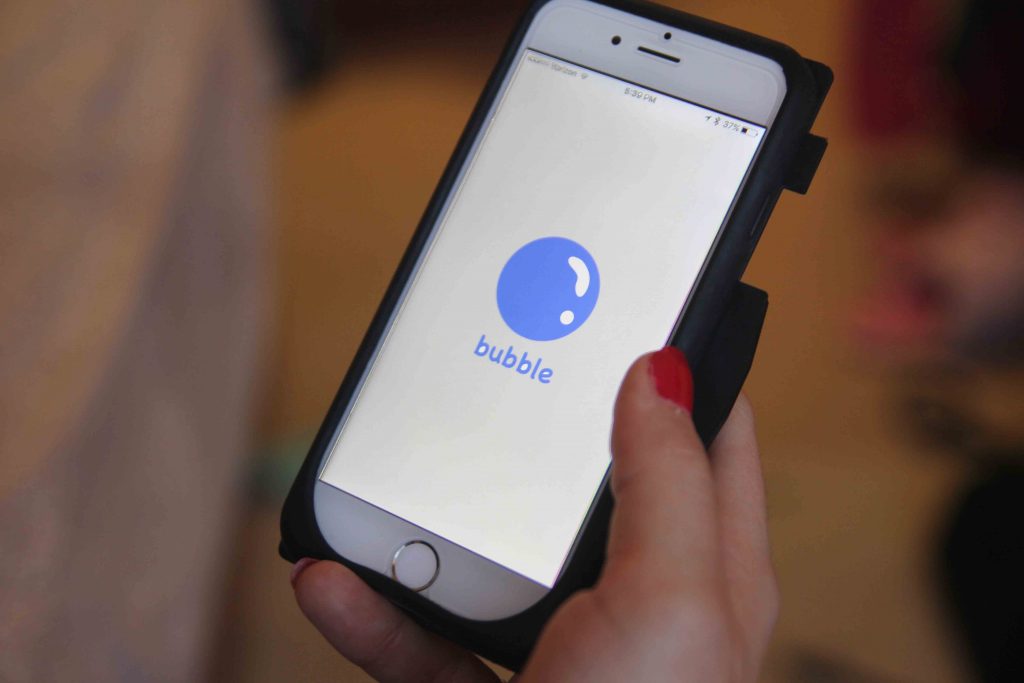
In the past few years, social media has been growing and so has its influence on us. As a Millennial, chances are you have an account for Twitter, Facebook, Instagram or all three.
The popularity of social media is exactly what led Joshua Ebrahimi, a 2015 graduate of Binghamton University, to create a new social media app called Bubble.
The description for Bubble summarizes what it’s used for: “Bubble is a location-based social networking app that connects people in their area. Instantly view and share information with people within a three-mile radius from you.”
Ebrahimi, a native of Great Neck, New York, noticed how fast Yik Yak was spreading on campus, and wanted to make it more niche.
“When I saw apps like Yik Yak and Twitter, I saw that some of these apps weren’t giving any benefits to the community surrounding it,” Ebrahimi said. “They don’t really have that big effect to your local community, and that’s what Bubble is trying to do.”
“It’s more like a localized Twitter [than Yik Yak],” said Ebrahimi about his creation.
To sign up for the app, you enter your personal information and then add a profile picture. Though it’s not required, putting in this information places an emphasis on maintaining a personal profile rather than interacting with anonymous users as one would on Yik Yak. According to Ebrahimi, this leads to more meaningful connections.
“Social media apps like these inspire revolutions in their local area as well as coming together,” Ebrahimi said.
Ebrahimi believes his app can reignite the importance of a local community, something social media in general does not promote.
“I want to see people engage on there, and actually meeting each other through the app,” Ebrahami said.
My personal experience with Bubble certainly supported this idea of community. As soon as I downloaded the app, I saw that the most recent post was about the lack of croutons in a dining hall. As I scrolled down, I could see that most posts were done by students over the weekend, like one asking if anyone was interested in getting brunch at Citrea.
Despite the idealistic thoughts that inspired Bubble, Ebrahimi has hit a few bumps in the road while promoting the app. He explained that it is hard to market new apps to students because they are already loyal to their favorite social media sites.
Ebrahimi currently works at a marketing agency and plans to promote Bubble in Binghamton as well as other college towns over the next several weeks, hoping this will spark downloads by new users.
Though he’s focusing as much time as he can on his app, Ebrahimi mentioned he would always be rather working on Bubble than anything else. This passion for his creation inspires the advice he wants to share with students that are attempting to found their own startups.
“Start right now, don’t wait [until] after school,” Ebrahimi said. “Do whatever you can to make your startup happen.”


